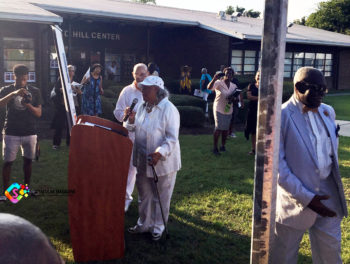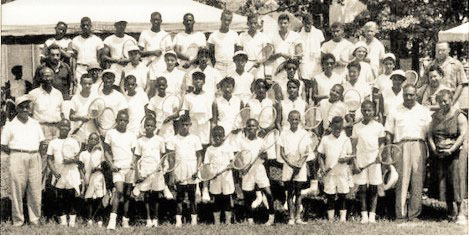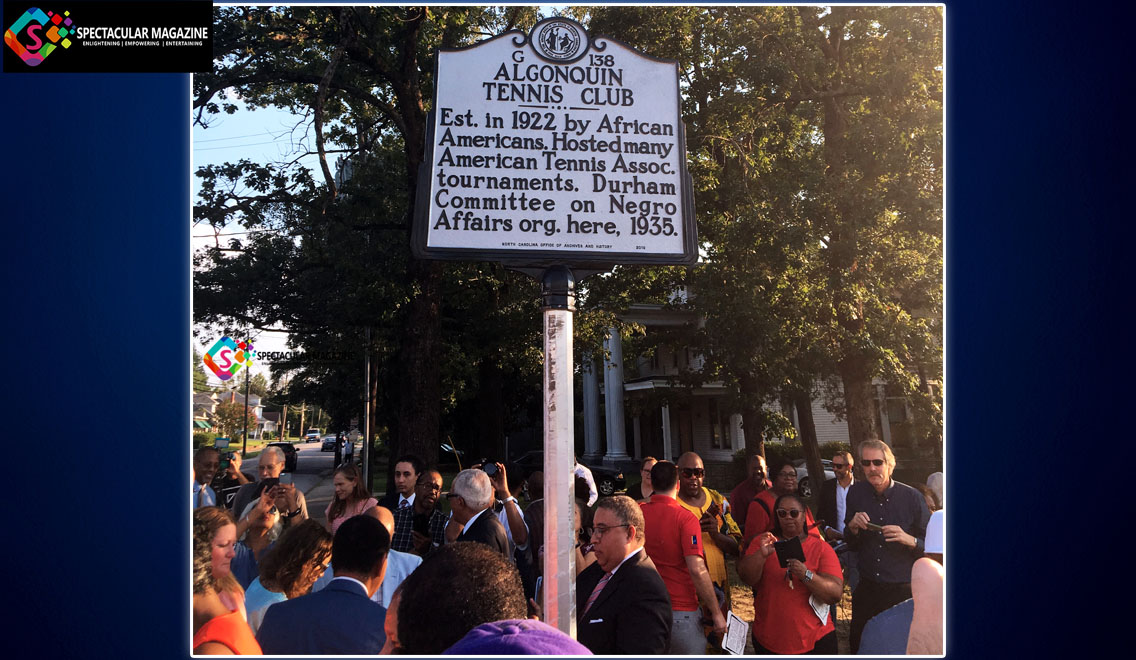[GALLERY] Significance Of The Algonquin Tennis Club ‘Marked’ In History
Durham NC – The athletic, social, and political significance of the Algonquin Tennis Club is now honored with a North Carolina Highway Historical Marker. The unveiling of the marker, located at 1308 Fayetteville St., and a historical program took place on August 15. Nathan Garrett, who played tennis at the Club, and his wife Wanda Garrett hosted the event. The tarp covering the marker was removed by Eddie Davis and Dr. E Victor Maafo during the ‘Unveiling of the Marker’ ceremony.

In the early 1900s African Americans weren’t welcomed into the white U.S. Lawn Tennis Association. In 1916 The American Tennis Association was established to encourage and support competitive tennis. It was the nation’s first national sports league for African Americans.
In 1922 a group of Black businesses and political citizens from Durham organized a club to give African Americans a place to play tennis.

From 1922 until it burned in the mid-1960s, the Algonquin Tennis Club hosted tournaments and exhibition matches for black athletes, among them Althea Gibson, Arthur Ashe, and many of Durham’s top tennis players. The American Tennis Association, a black group that promoted tennis across the nation, included Durham and The Algonquin on its tournament circuit. Dr. Hubert Eaton of Wilmington, with whom Gibson lived for a time, is given much credit for the development of the women’s tennis star. Likewise, Dr. Walter “Whirlwind” Johnson of Lynchburg, Virginia, is credited with Ashe’s training and support. The Algonquin Tennis Club members entertained and offered robust competition for each of these black tennis legends. The Algonquin reached out and introduced the world of tennis to a wide array of youth.
The Algonquin Tennis Club also provided civic, entrepreneurial, social, and political meeting space for Durham’s African American residents. It was there on August 15, 1935, that the Durham Committee on Negro Affairs (DCNA) was formed. The DCNA, now the DCABP, was (and remains) a powerful political force in the Durham black community. It has sought to give a voice to all African Americans in Durham and to provide a community outlet for the political energy and the multiple other aspirations of Durham’s black residents. The Durham Business and Professional Chain was formed at The Algonquin Tennis Club in 1937.
The Unveiling of the Algonquin Tennis Club NC Historical Marker was a Durham 150 event.
Durham 150, the official commemoration of the 150th anniversary of the City of Durham’s incorporation in 1869, is a yearlong celebration. The mission of Durham 150 is to recognize Durham’s past, present, and future with a year of events, activities, and community engagements to celebrate Durham’s rich history and highly promising future. A diverse group of Durham residents have been identified to coordinate Durham 150 efforts to encourage civic engagement, widespread community participation, and the values of shared prosperity.
Photos: Brian Hayes


